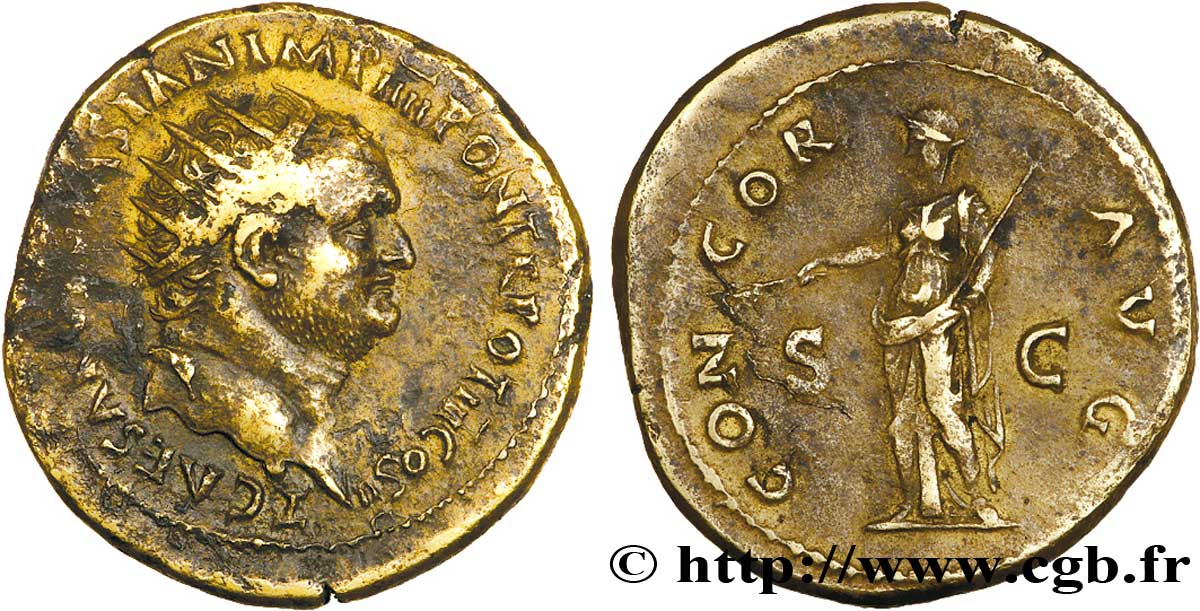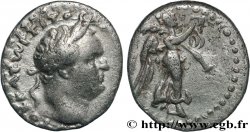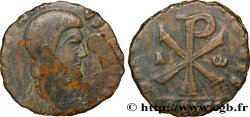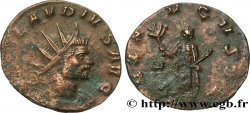v55_0130 - TITUS Dupondius, (MB, Æ 28)
MONNAIES 55 (2012)
Starting price : 480.00 €
Estimate : 780.00 €
Realised price : 480.00 €
Number of bids : 1
Maximum bid : 638.00 €
Starting price : 480.00 €
Estimate : 780.00 €
Realised price : 480.00 €
Number of bids : 1
Maximum bid : 638.00 €
Type : Dupondius, (MB, Æ 28)
Date: juillet - décembre
Date: 72
Mint name / Town : Roma
Metal : copper
Diameter : 27,50 mm
Orientation dies : 6 h.
Weight : 12,19 g.
Rarity : R3
Coments on the condition:
Exemplaire sur un flan large et ovale, bien centré des deux côtés. Beau portrait de Titus bien venu à la frappe. Joli revers inhabituel. Sans patine avec un métal légèrement corrodé
Catalogue references :
Predigree :
Cet exemplaire provient de MONNAIES XXIVA, n° 294
Obverse
Obverse legend : T CAES IMP VESP - IMP IIII PON TR P II COS II.
Obverse description : Tête radiée de Titus à droite (O).
Obverse translation : “Titus Cæsar Imperator Vespasianus Imperator quartum Pontifex Tribunicia Potestate iterum Consul iterum”, (Titus césar empereur Vespasien revêtu de la quatrième acclamation impériale pontife revêtu de la deuxième puissance tribunitienne consul pour la deuxième fois).
Reverse
Reverse legend : CON-COR AVG/ S|C.
Reverse description : Concordia (la Concorde) drapée debout à gauche, tenant une branche de la main droite et un sceptre transversal de la gauche.
Reverse translation : “Concordia Augusti”, (La Concorde de l’auguste).
Commentary
Poids léger. Rubans de type 2. C’est seulement le deuxième exemplaire connu, le premier est conservé à l’Ashmolean Museum d’Oxford. Dans MONNAIES XXIV, nous considérions ce dupondius comme unique.
Lightweight. Type 2 ribbons. This is only the second known example; the first is kept at the Ashmolean Museum in Oxford. In COINS XXIV, we considered this dupondius to be unique.
Lightweight. Type 2 ribbons. This is only the second known example; the first is kept at the Ashmolean Museum in Oxford. In COINS XXIV, we considered this dupondius to be unique.








 Report a mistake
Report a mistake Print the page
Print the page Share my selection
Share my selection Ask a question
Ask a question Consign / sell
Consign / sell
 Full data
Full data















